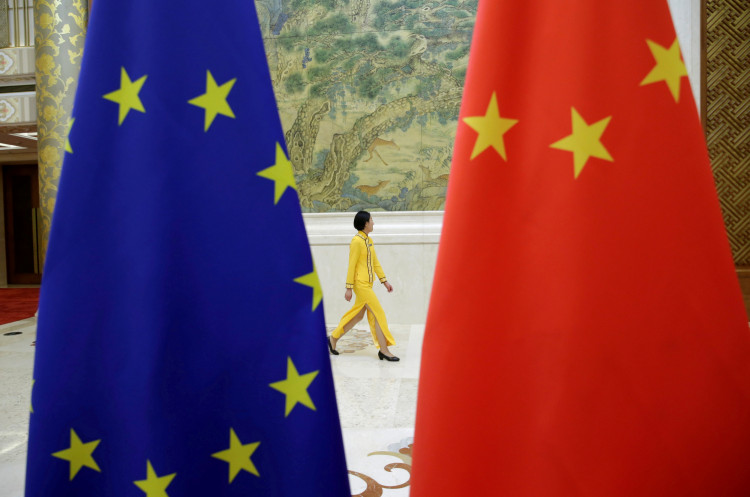The president of the European Chamber in China, Jens Eskelund, has warned that rising protectionism between China and Europe threatens to escalate into a full-scale trade war, likening the situation to a "slow motion train accident." Eskelund's comments come on the heels of German Chancellor Olaf Scholz's three-day tour of China, during which he conveyed European concerns about Beijing's investment policies and pushed for improved market access.
The European Union has launched several investigations into whether Chinese manufacturers are dumping subsidized goods, such as electric vehicles, on its markets. U.S. Treasury Secretary Janet Yellen, who also recently visited China, echoed these concerns, stating that China's massive investments in advanced manufacturing of clean energy goods have resulted in an unfair playing field.
Eskelund emphasized the urgent need for European and Chinese leaders to engage in dialogue to avoid a full-blown trade war. "We need our leaders to sit down and explore the ways that we can avoid that this becomes a full-blown trade war. And I think it's getting a little bit urgent," he said during a meeting of the chamber's South China chapter in Guangzhou.
Despite the rising tensions, Eskelund acknowledged that it is impossible to think of global supply chains without China, given its status as the world's leading manufacturer. "What we hope to see change a little bit is that there is an understanding that China has such a vast scale in manufacturing, that just small incremental increases in manufacturing can have huge global implications," he added.
Meanwhile, EU trade commissioner Valdis Dombrovskis cautioned against the "weaponization" of trade amid the latest escalation of tensions between the U.S. and China. In response to remarks made by former European Central Bank president Mario Draghi, who called for a "radical change" in the EU's approach to remain competitive, Dombrovskis told CNBC that he did not believe trade "protectionism" was the answer to heightened geopolitical tensions. However, he insisted that the bloc was willing to defend itself in the new trade environment.
"The geopolitical landscape is changing, it's getting more fragmented, it's getting more conflictual, we see the weaponization of trade. So we need to equip ourselves also as the European Union to function in this more conflictual world," Dombrovskis said.
The EU trade commissioner's comments come as U.S. President Joe Biden is set to call on the U.S. Trade Representative Katherine Tai to triple the China tariff rate on steel and aluminum imports, a move that would essentially preclude Chinese steel sales in the U.S. and likely reroute Chinese goods to other global markets. Dombrovskis noted that such proposals would have a clear impact on the EU and that representatives were currently engaged in talks with the U.S. on its China tariffs.
The rising tensions between the U.S. and China have put Europe in a delicate position, as it seeks to balance its economic ties with China while maintaining its geopolitical and economic alliances with the United States. "If it will be necessary, the EU will be ready to stand up to defend our economy and our companies," Dombrovskis said.
As the world's two largest economies continue to clash over trade issues, the International Monetary Fund (IMF) has highlighted geopolitical tensions as a key threat to global growth in its recent World Economic Outlook. The ongoing trade disputes and the potential for further escalation have raised concerns among businesses and policymakers alike, with many calling for increased dialogue and cooperation to avoid a full-scale trade war that could have far-reaching consequences for the global economy.






